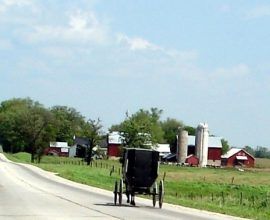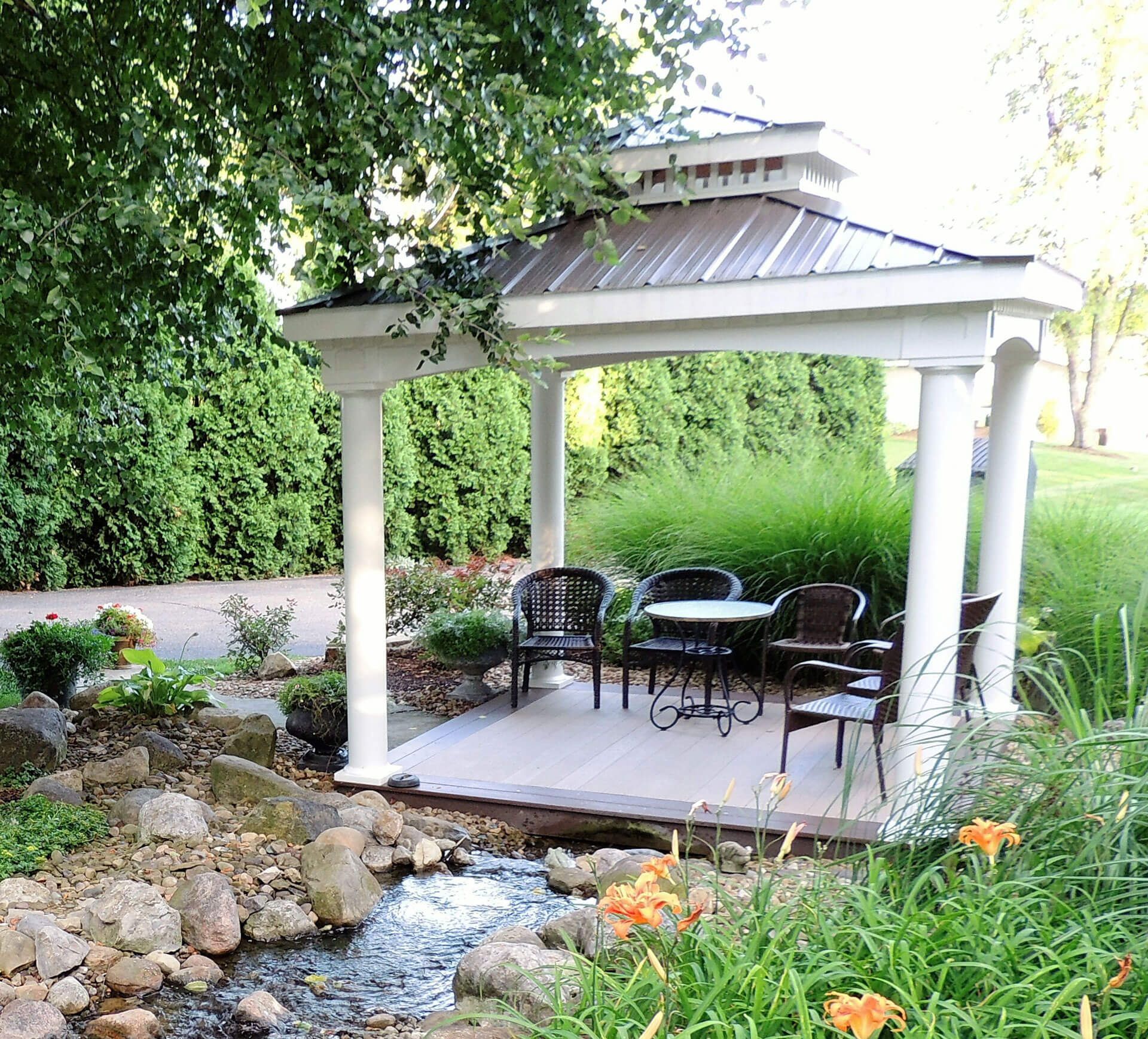MENU

Are you interested in learning more about the Amish lifestyle and culture? I recently came across a great article with answers to a lot of our guests frequently asked questions and thought I'd share it with you. I even learned a couple things! I hope you enjoy it as much as I did.
Q. What Are the Differences Between Amish and Mennonite Groups?
A. It is impossible to answer this question with a few simple sentences. There are so many varieties of Mennonites and Amish around the world that we cannot cover the many shades of belief and practice among them. However, most Mennonite and Amish groups have common historical roots. Both were part of the early Anabaptist movement in Europe, which took place at the time of the Reformation. A group led by Jacob Amman broke from the Mennonites in 1693 and became known as Amish. Amish and Mennonites are Christian fellowships; they stress that belief must result in practice. The differences among the various Amish and Mennonite groups through the years have almost always been ones of practice rather than basic Christian doctrine.
Q. What Are The Basic Beliefs Of The Amish?
A. The Amish believe that:
- The Bible is the inspired word of God
- There is one God eternally existing as Father, Son, and Holy Spirit (Romans 8:1-17).
- God loved the world so much that he gave his only son, Jesus, to die on the cross for the sins of the world.
- Through faith in the shed blood of Jesus we are reconciled to God.
- Salvation is by grace through faith in Christ, a free gift bestowed by God on those who repent and believe.
- As Christians, we should live as brothers.
- The Holy Spirit convicts of sin, and also empowers believers for service and holy living.
- The church is separate from the State
- We are committed to peace.
- Faith calls for a lifestyle of discipleship and good works service and holy living
Q. Why Don't The Amish Use Electricity
A. Amish people interpret linking with electrical wires as a connection with the world - and the Bible tells them they are not to be conformed to the world (Romans 12:2). In 1919 the Amish leaders agreed that connecting to power lines would not be in the best interest of the Amish community. They did not make this decision because they thought electricity was evil itself, but because easy access to it could lead to many temptations and the deterioration of church and family life.
Most of us today think it impossible to live without the modern conveniences such as electricity and cars. What makes the Old Order Amish unique is not that they get along without modernity, but that they choose to do without it when it would be readily available. The Amish value simplicity and self-denial over comfort, convenience and leisure. Their lifestyle is a deliberate way of separating from the world and maintaining self-sufficiency. (Amish are less threatened by power shortages; caused by storm, disaster or war.) As a result there is a bonding that unites the Amish community and protects it from outside influences such as television, radios, and other influences.
Q. Why Will The Amish Ride In Automobiles If They Will Not Own Them?
A. Maintaining Amish standards, but accepting some modernization to meet needs of living, requires compromise that must not disrupt the social structure. By rejecting certain types of modernity and accepting others, some Amish appear to the outside world to be contradicting themselves - hypocrites. Hover, from the viewpoint of Amish culture, there is no contradiction. One of the more pronounced inconsistencies is the use of automobile...although he may not own a car, a member may accept rides and willing hires an automobile with a driver to transport him from place to place. There was little hesitation when the Amish decided no to car ownership. It would separate the community in various ways. If only wealthy members could afford it, the cr would bring inequality. Proud individuals would use it to show off their status, power and wealth. Cars would speed things up dramatically, disrupting the slow pace of Amish living. So, they will use them but now own them, for then things will surely get of of control.
Q. Do The Amish Use Modern Medicine And Doctors?
A. Most Amish and Mennonite groups do not oppose modern medicines. Their readiness to seek health services varies from family to family. Nothing in the Amish understanding of the Bible forbids them from using modern medical services, including surgery, hospitalization, dental work, anesthesia, blood transfusions, etc. They do believe, however, that good health, both physical and mental, is a gift from God and requires careful stewardship on the part of the individual. With few exceptions, physicians rate the Amish as desirable patients; they are stable, appreciative, and their bills will be paid. They do hot have hospitalization insurance, but they band together to help pay medical expenses for anyone of their group who needs financial assistance. A designated leader in the Amish community is given responsibility for their mutual aid fund.
Q. Do The Amish Pay Taxes?
A. Self-employed Amish do not pay Social Security tax. Those employed by non-Amish employers do pay Social Security tax. The Amish do pay real estate, state and federal income taxes, county taxes, sales tax, etc.
The Amish do not collect Social Security benefits, nor would they collect unemployment or welfare funds. Self sufficiency is the Amish community's answer to government aid programs. Section 310 of the Medicare section of the Social Security act has a sub-section that permits individuals to apply for exemption from the self-employment tax if he is a member of a religious body that is conscientiously opposed to Social Security benefits but that makes reasonable provision of taking care of their own elderly or dependent members. The Amish have a long history of taking care of their own members. They do not have retirement communities or nursing homes; in most cases, each family takes care of their own, and the Amish community give assistance as needed.
Q. Does Anyone Ever Join or Leave
A. Anyone is welcome to join the Amish and Mennonites as long as they are willing to meet the requirements for membership. These requirements vary, as they are more rigid among the Amish and conservative Mennonites and more relaxed among moderate and liberal Mennonites. It is very rare for someone to join the Amish, but it does happen occasionally. People also leave the Amish and Mennonites. Most people who leave the Amish become Mennonites. The Amish particularly try to keep their children within the church. Some sects will shun family members who choose to leave, even if they leave to become Mennonite. Others do not and they maintain good relationships with their non-Amish family members.
Q. Why Do Amish Men Have Beards, But Not Mustaches?
A. There are quite a few scriptures that mention beards in the Bible. An example would be Psalm 133:1-2. An Amishman does not shave his beard after he becomes married. A long beard is the mark of an adult Amishman. Mustaches, on the other hand, have a long history of being associated with the military, and therefore are forbidden among the Amish people.
Q. Why Do They Dress The Way They Do?
A. The plain and simple dress of the Amish is an outward show of their inner convictions of humility and modesty. They also believe it is important to differentiate the roles between men and women, which is why Amish and many Mennonite women wear dresses. The head covers of the women are related to a biblical reference in 1 Corinthians 11, which emphasizes a need for women to have their head covered.
Q. Why Don't They Use Modern Technology?
A. The Amish and Mennonites believe that God has called his followers to separate themselves from the world. They interpret that to mean that materialistic desires of the rest of the world should not be a part of their culture. Another important aspect of the Amish culture is the nature of their community. A more simple lifestyle, such as the use of horses and buggies for transportation, allows the Amish to maintain a close-knit community. Another big reason the Amish maintain a simple life without the addition of modern technology is simply because they understand that these new devices do not add any fulfillment to life.
Q. What Is Their Education System Like?
A. While the majority of Mennonites embrace high school and college education, the Amish and some Mennonites do not think higher education is necessary. All Amish children do go to school at least until their eigth grade year. When the American education system still used one-room schoolhouses, the Amish integrated into the public school system. Some Amish still do, but many have chose to send their children to parochial schools specifically designed for the Amish. Most are one-room schoolhouses emphasizing reading, writing and arithmetic. While most of these are private schools, in Holmes County, the public school district has several schools set aside specifically for Amish students.
Although many would view this lifestyle as very difficult, the Amish consider it a precious privilege to be able to raise their children in a home and community setting that is a little more shielded from the technology, images, and interruptions that are a constant part of life amongst the non-Amish.
Article from 2015 Ohio Amish Life Magazine














